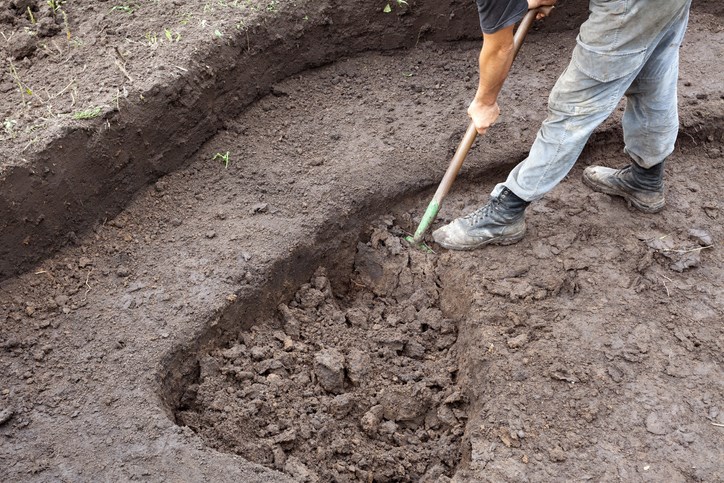However, the simple task of digging a garden or planting a tree can have enormous community consequences if residents are unaware of the underground infrastructure that can be impacted by their picks and shovels.
The provincial government has proclaimed April 2021 as “Safe Digging Month” in B.C. Various organizations, including BC 1 Call, Fortis BC and the BC Common Ground Alliance (BCCGA), have also been urging British Columbians who are planning to dig, whether to plant a tree, build a deck or install a new fence, to always click or call BC 1 Call before breaking ground.
A lot has changed since BC 1 Call began to help British Columbians learn what utility infrastructure lies under their properties almost three decades ago. Improvements in technology, particularly related to telecommunications, have placed new infrastructure beneath our homes that provides us with quicker internet connections. These relatively new fibre optic cables, along with new and long-existing underground power lines and natural gas lines, as well as water and sewage connections, serve our homes.
The perils and repair costs that could be avoided by using BC 1 Call are not exclusive to gardening and light landscaping. Other home improvement projects, such as the installation of decks and firepits, also call for pre-checking.
Fences, mailboxes and even realtor signs have caused underground infrastructure damage in the past, when holes were dug without reference to a map outlining which pipes or conduits lay directly below.
In February, Research Co. conducted a survey on behalf of BC 1 Call to gauge British Columbians’ awareness of how the process works. Across the province, only 28% of the respondents correctly identified that BC 1 Call connects residents with member companies that have underground infrastructure where they plan to dig so the members can send them free maps and information.
This means that more than seven in 10 British Columbians are either unaware of the service or genuinely confused about what it entails. Some wrongly assumed that the call will ultimately result in the delivery of excavation tools and tips. Others mistakenly expected the deployment of a contractor to check where a resident is planning to dig.
While one-third of men in British Columbia correctly identified the service (33%), only one in four women (23%) did so.
As expected, more British Columbians aged 55 and over accurately told us what BC 1 Call does (31%) than those aged 35 to 54 (27%) and those aged 18 to 34 (22%).
Regionally, awareness of BC 1 Call’s service is highest in southern B.C. and Â鶹´«Ã½Ó³»Island (30% each), and drops to 28% in Metro Vancouver, 25% in the Fraser Valley and 23% in northern B.C.
British Columbians who live in a condominium are the least likely to pinpoint the service that BC 1 Call provides (23%). The proportion rises to 29% for those whose primary residence is a detached house, 30% for those who live in a duplex and 33% for those who reside in a townhouse.
The findings outline the challenge of ensuring that all British Columbians are aware of the consequences of digging without first clicking or calling BC 1 Call at 1-800-474-6886. Nobody wants a fun weekend of gardening or landscaping activities ruined because they inadvertently disrupted critical services or caused environmental contamination. •
Mario Canseco is president of Research Co.
Results are based on an online survey conducted from February 23 to February 25 among 800 adults in British Columbia. The margin of error, which measures sample variability, is plus or minus 3.5 percentage points, 19 times out of 20.
